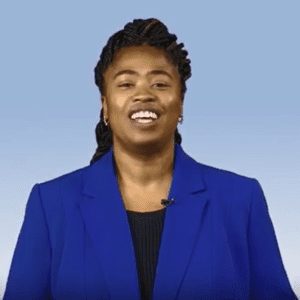Glossary of Key Education Terms
L ike most professions, the education landscape is full of acronyms and jargon. As we gear up for the 2017 state legislative session which will focus on education funding, the LEV Policy Team has created this glossary of key terms you will likely hear:
ike most professions, the education landscape is full of acronyms and jargon. As we gear up for the 2017 state legislative session which will focus on education funding, the LEV Policy Team has created this glossary of key terms you will likely hear:
- Allocation: an amount of money determined by the state and given out to districts.
- Basic Education: goals established by the Legislature for Washington’s education system, as well as a program to achieve those goals. See details here
- Biennium: a period of two years usually used for budgets.
- Bond: a method used by a public school district to finance the purchase of land or buildings or pay for school construction costs (like getting a loan for a project). Bond measures are placed on the ballot by district school boards to be approved or defeated by the voting public and must be paid back by the local taxpayers. Bonds require a supermajority (2/3) of the vote to pass.
- ELL (English language learner): a student whose primary language is a language other than English and who have English language skills that are sufficiently lacking or absent resulting in a delay of learning.
- FRL (free and reduced lunch): a term used to describe students who qualify for participation in the federal school nutrition program that provides free or reduced price school lunches for students from low-income households.
- Full-day kindergarten: state funded kindergarten that requires a total of 1000 instructional hours and 180 days of instruction.
- HB: House Bill
- Initiative: a law proposed by citizens and placed on the ballot in an election. This process bypasses the state legislature and allows citizens to pass laws.
- Instructional hours: the number of hours districts are required to provide students. Instructional hours include all time in the school day from the beginning of the first period class to the end of the last period class, except for time spent on meals.
- LAP (learning assistance program): a program to serve eligible students who need academic support for reading, writing, and math, or who need readiness skills to learn these core subjects. Money for the LAP program is provided by the state based on a district’s low-income students.
- Levy cliff: a reduction, in current law, in the amount of money school districts can collect through local property tax levies that takes effect in January 2018.
- Levy: a request by a school district of voters to raise or continue local property taxes for a limited number of years for operations costs or capital improvements such as computers or other equipment.
- McCleary: The Washington State Supreme Court case which ruled that the State of Washington is violating the constitutional rights of students by failing to amply fund basic education. The Court ordered the Legislature to make “steady, real, and measurable” progress each year to fully fund K-12 public education by 2018.
- MSOC (materials, supplies, and operating cost): the cost to a school district or education entity for materials and supplies used in the classroom (e.g.: white boards, pencils, and printer paper) and operating costs like building maintenance and utility bills.
- National Board Certification: a voluntary, advanced teaching credential that goes beyond state licensure. National Board Certification has national standards for what accomplished teachers should know and be able to do.
- Professional Certification: an advanced level teaching certificate, issued to holders of a Residency Certification who complete a ProTeach Portfolio.
- Prototypical school: a school design used in the state funding formula to determine the number of teachers, principals, and other school staff that are needed to provide a basic education. The size and staffing levels in a prototypical school differ for elementary, middle, and high schools. Districts are not required to staff their schools in the same way as the prototypical schools.
- QEC (quality education council): created by the legislature in ESHB 2261. The purpose of the QEC was to develop strategic recommendations for implementation of a new definition of Basic Education and the financing necessary to support it. During the 2016 legislative session, HB 2360 eliminated the QEC.
- Residency Certification: the initial license issued by the state for a teacher to be allowed to teach in a school. Teachers in Washington must attempt to earn the Professional Certificate after teaching for three years.
- SB: Senate Bill
- SPED (special education): specifically designed instruction, at no cost to the parents, to meet the unique needs of a child with a disability.
- Staff mix: a part of the state funding formula for schools used to capture the average teaching experience and education level of teachers in a district. Teachers’ salaries go up with each year of experience and level of education. Staff mix (a number between 1 and 1.9) is multiplied by a district’s base teacher salary to determine the salary amount the state provides for teachers.
- TBIP (transitional bilingual instructional program): a state supported program that funds districts to provide a two-language system of instruction. Students learn language concepts and knowledge in their primary language at the same time they receive instruction in English.





 Beginning June 14, the Office of the Superintendent of Public Instruction (OSPI) is holding forums across the state to provide an overview of the Every Student Succeeds Act (ESSA) implementation in Washington. Each forum is open to the public and there is no registration required.
Beginning June 14, the Office of the Superintendent of Public Instruction (OSPI) is holding forums across the state to provide an overview of the Every Student Succeeds Act (ESSA) implementation in Washington. Each forum is open to the public and there is no registration required.



